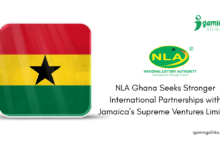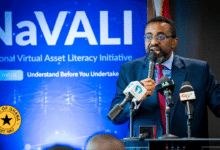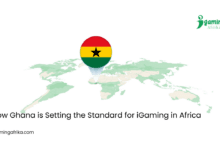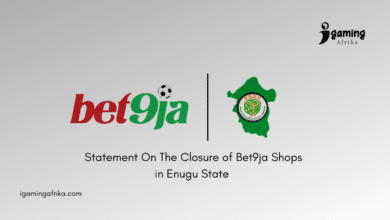Ghana Unveils Policy Framework for Virtual Assets

Ghana has taken a decisive step toward shaping the future of digital finance in Africa. The Bank of Ghana, together with key financial regulators, has introduced a comprehensive policy framework governing virtual assets and service providers. This initiative marks a major advancement for the country’s fintech and crypto sectors, laying the foundation for a transparent, secure, and well-regulated digital asset environment.
The new framework aims to strike a balance between innovation and financial integrity, recognizing the growing role of cryptocurrencies and blockchain-based assets while protecting consumers and the financial system from risks such as fraud, money laundering, and terrorism financing.
Ghana’s virtual asset market has grown rapidly, now serving over three million users. A 2024 national risk assessment revealed widespread VASP activity, with over 100 providers registered in a mandatory exercise conducted in July 2025. These include businesses offering exchange, wallet, and investment services, many of which previously operated with minimal oversight.
The Bank of Ghana, along with the Securities and Exchange Commission (SEC) and the Financial Intelligence Centre (FIC), acknowledged that the virtual asset sector can no longer remain outside formal regulation. Instead of banning virtual assets, Ghana has opted for a risk-based, inclusive regulatory model. The policy aligns with Financial Action Task Force (FATF) recommendations that discourage outright bans, emphasizing that regulation is more effective than prohibition.
The policy outlines six core principles for the regulation of virtual assets and service providers:
- Comprehensive Regulation – All VASPs will fall under clear regulatory oversight.
- Activity-Based Oversight – The country aims to remain neutral with the objective of enabling responsible innovation in the virtual asset ecosystem, while ensuring a level playing field between both incumbent and new role players in the financial sector.
- Risk-Proportionate Controls – Regulatory actions will be proportionate to the risks posed by virtual asset activities. Each virtual asset use case will be reviewed from a risk perspective, recognising that not all activities carry the same level of threat or systemic impact.
- Collaborative Supervision – There will be continued collaboration on policy stances and regulatory actions across agencies including the Bank, SEC, FIC, Cybersecurity Authority (“CSA”) and Data Protection Commission (“DPC”)
- Global Alignment – Ghana’s policies will mirror best practices from FATF, IMF, BIS, and IOSCO.
- Public Awareness and Literacy – Through the National Virtual Assets Literacy Initiative (NaVALI), citizens will gain education on digital finance and fraud prevention.
The document sets out eight key policy recommendations that will guide the regulation of Ghana’s virtual asset ecosystem. First, all entities offering virtual asset services are to be licensed or registered with the relevant regulator, that is, the Bank of Ghana (BoG) or the Securities and Exchange Commission (SEC) depending on the nature of their activities. Second, the regulatory framework will be anchored on the Anti-Money Laundering Act, 2020 (Act 1044) and harmonized with international standards to ensure consistency and credibility. Third, Ghana will enforce the Financial Action Task Force (FATF) “Travel Rule,” requiring Virtual Asset Service Providers (VASPs) to collect and transmit accurate sender and receiver information for all virtual asset transactions to enhance transparency and traceability.
Read Also: Morocco Drafts Law to Regulate Digital Assets
Supervisory responsibilities will be clearly defined: the BoG will oversee payments, custody, and monetary stability; the SEC will supervise trading and investment-related activities; and the Financial Intelligence Centre (FIC) will handle AML/CFT monitoring and enforcement. The policy also calls for continuous monitoring of the virtual asset ecosystem to detect illicit activity and maintain financial integrity. Importantly, virtual assets will not be recognized as legal tender in Ghana.
To strengthen oversight, the Bank proposes the establishment of a Virtual Assets Regulatory Office (VARO) as a specialized unit to coordinate regulation, engage international partners, and bridge collaboration between regulators and industry stakeholders. Finally, through the National Virtual Assets Literacy Initiative (NaVALI), Ghana will promote public awareness and responsible participation in the digital financial space, ensuring citizens are informed and protected as the sector evolves.
The initiative has been welcomed by industry leaders, including the Virtual Assets Chamber (VAC), which commended Ghana’s forward-thinking direction and commitment to clarity, transparency, and collaboration. VAC has also pledged to work with regulators, innovators, and educators to ensure effective implementation and harmonization across African markets.























